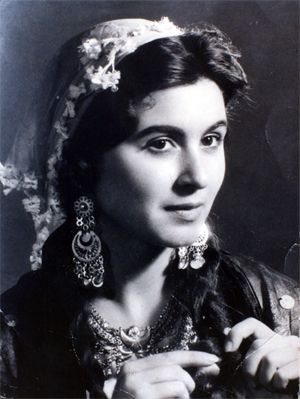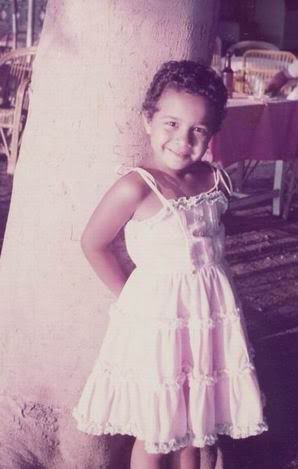He [Juan Ribero] has always ferociously opposed the artificial pose, scenes arranged in the studio, the cluttered prints made with superimposed negatives so much in mode a few years ago. He believes in photography as a personal testimony, a way of seeing the world, and that way must be honest, using technology as a medium for capturing reality, not distorting it. When I went through a phase in which I photographed girls in huge glass receptacles, he asked why I did it with such scorn that I did not continue down that road, but when I described to him the portrait I took of a family of itinerant circus artists, naked and vulnerable, he was immediately interested. I had taken several photos of that family posed before a rickety covered wagon that served as transport and living quarters, when a little girl about four or five had come out, totally naked. That gave me the idea of asking all of them to take off their clothes. They did it with no ill will and posed with the same intent concentration as when dressed. It’s one of my best photographs, one of the few that has won prizes. It was soon evident that I am more attracted to people than to objects or landscapes. When I shoot a portrait there’s a relationship with the model that even if very brief is nonetheless a connection. The plate reveals not only the image but the feelings that flow between subject and photographer. Don Juan Ribero liked my portraits, very different from his. “You feel an empathy for your models, Aurora, you don’t try to dominate them, you try to understand them; that’s why you succeed in exposing their souls,” he said. He encouraged me to leave the safe walls of the studio, take my camera outside, look with my eyes wide open, overcome my shyness, lose my fear, approach people. I realized that usually I was welcomed, and that the subjects for my lens posed with all the seriousness, even though I was a young girl: the camera inspired respect and confidence, people opened up, gave themselves to it. I was limited by my youth; it wasn’t until many years later that I was able to travel across the country, witness strikes, go into the mines, hospitals, the shacks of the poor, forgotten little schools, the cheap boardinghouses, the dusty plazas where retired old men sat and stared, the fields and fishing villages. "Light is the language of photography, the soul of the world. There is no light without shadow, just as there is no happiness without pain," Don Juan Ribero told me seventeen years ago during the lesson he gave me that first day in his studio on the Plaza de Armas. I have never forgotten.
* * * * *
When Amanda Lowell noticed that I was never without my camera and spent hours closeted in the darkroom I improvised in our rented house, she offered to introduce me to the most celebrated photographers in Paris. Like my maestro, Juan Ribero, she believed that photography and painting are not competing arts but basically different: the painter interprets reality, and the camera captures it. In the former everything is fiction, while the second is the sum of the real plus the sensibility of the photographer. Ribero never allowed me sentimental or exhibitionist tricks—none of this arranging objects or models to look like paintings. He was the enemy of artificial composition; he did not let me manipulate negatives or prints, and in general he scorned effects of spots or diffuse lighting: he wanted the honest and simple image, although clear in the most minute details. “If what you want is the effect of a painting, then paint, Aurora. If what you want is truth, learn to use your camera,” he would say again and again. Amanda Lowell never treated me like a child; she took me seriously from the beginning. She too was fascinated by photography, which at that time no one called art and for many was just another bit of nonsense among the many bizarre and useless fripperies of a frivolous century. “I'm a little past the age to learn photography, Aurora, but you have young eyes, you can see the world and make others see it the way you do. A good photographer tells a story, it reveals a place, an event, a state of mind; it’s more powerful than pages and pages of writing,” she told me.
From "Portrait in Sepia" by Isabel Allende

